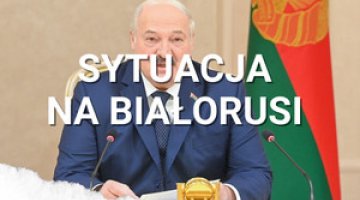A ritual without any content: the parliamentary election in Belarus
The election to the lower chamber of the Belarusian parliament was held on 23 September. A part of the opposition parties, not seeing the possibility for a real political tussle, decided to boycott the election. As had been the case with the previous election in 2008, no opposition representative obtained any of the 110 seats in the Chamber of Representatives. According to initial information, several representatives of pro-regime parties secured seats in parliament but most new members of parliament are non-partisan employees of the budget sector, civil servants and state officials. Independent observers argue that during the voting there were irregularities which included increasing the turnout (on average by 10-20%) which officially reached 74% and attempts made by members of election commissions to prevent supervision of vote counting. The Organization for Security and Co-operation in Europe (OSCE) mission also said the election had not met the standards required from OSCE members.
Commentary
- The election campaign once again revealed the weakness of the Belarusian opposition and its inability to take a unified stand. Opponents of the regime are split into two camps: those in favour of boycotting the elections and those who wish to participate in the election.. This division became the main topic of the opposition campaign and further compromised the effectiveness of the mobilisation of democratic forces. The majority of society, seeing the infinitesimal importance of their votes and of the parliament which was being chosen, did not express interest in the election. As a result, the majority of voters cast their ballots out of habit or fearing consequences of their vote in their place of work or education.
- In the Belarusian political system the parliament plays a marginal role in decision making processes. During the term which has just ended the members of parliament succeeded in voting in only one law on their own initiative (relating to the protection of animals). Consequently, legislative power in Belarus is confined to merely imitating democracy. in part by passing legal acts drawn up at the main decision making centre, i.e. the Presidential Administration. What is also characteristic is the marginal significance of political parties. Alexander Lukashenka, fearing that his position in the state may be weakened, has consistently been blocking the establishment of one or several strong parties and relies mainly on social organisations such as trade unions as well as political apparatus groups and the police and military.
- Due to the low activity of the opposition and society, the regime during the election limited its actions to random acts of repression and to preventing candidates calling for a boycott of the election from having access to the media. At the same time, opposition leaders for the first time did not decide to organise a demonstration following the election as they feared a repetition of the dramatic events of the last presidential election held in December 2010.
- Irrespective of the fact that it passed quite calmly, the Belarusian parliamentary election did not meet democratic standards and in consequence the new parliament, as was the case with the previous ones, will not be recognised by the EU or the majority of international organisations. Belarus will remain internationally isolated and dialogue between Minsk and Brussels will not be resumed. This will lead to a similar situation to that seen towards the end of 2011 wherein Belarus will continue relying solely on support from Russia as the only possible lender and supplier of energy resources.




